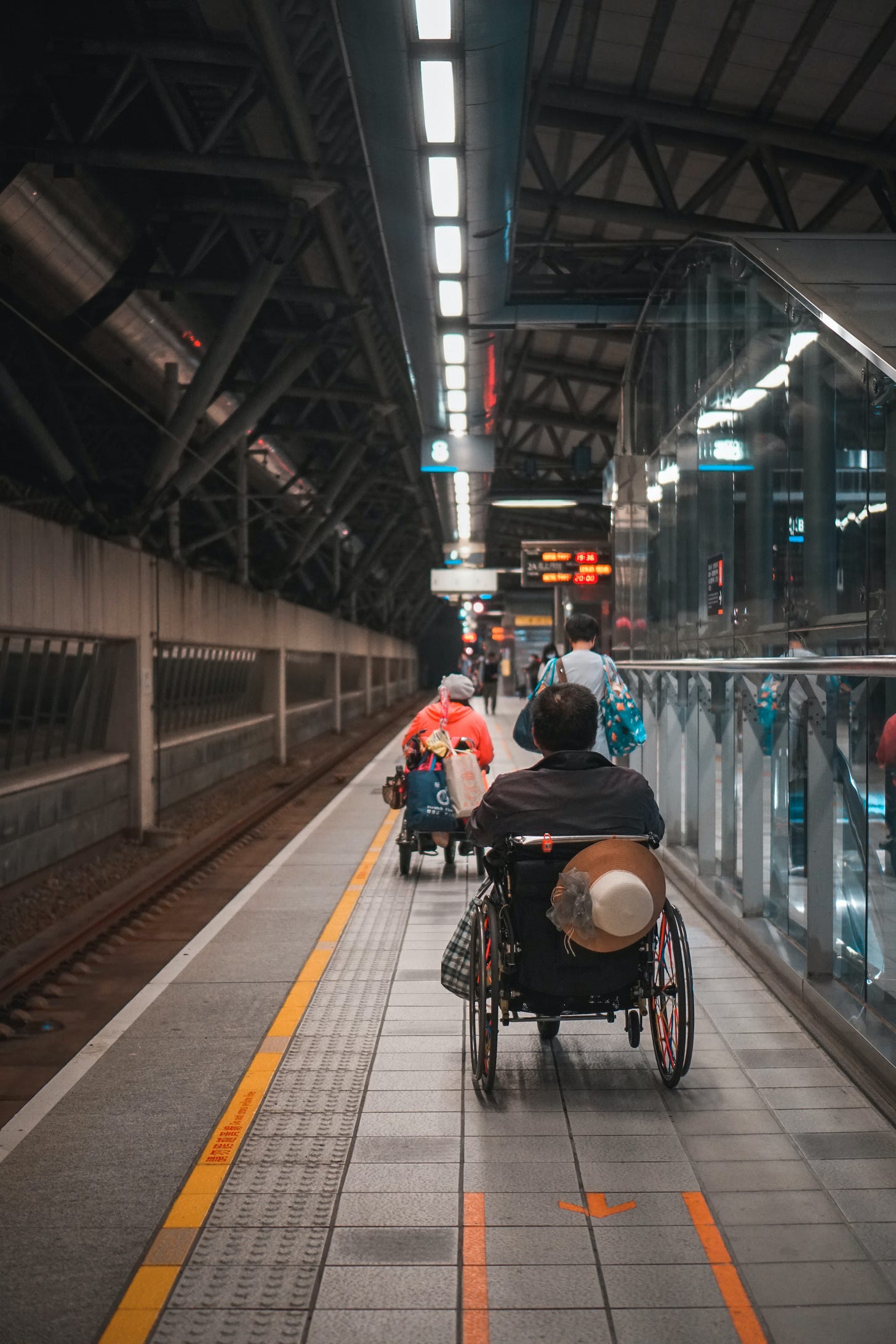A new subscriber asked me in comments the other day whether or not I knew the rules and regulations (my words, not hers) involved in work and academic accommodations based on disability and functional limitations. I didn’t really know how to answer that question in a comment space.
The answer is a little complicated, so I will try to lay it out here. I should repeat early and often that I am not a practicing attorney; I am a law school graduate. Since law school, I have specialized in the civil rights laws that pertain to people with disabilities. For 27.5 years (ending in October 2022), I had deep into the weeds level involvement with housing, dining, and academic accommodations for students at all levels in a famous private university.
So far, I haven’t mentioned the specific university—I don’t want them to come down on me if I can avoid it.
I cannot act as anyone’s attorney and can’t give anyone legal advice. I can give you my educated and experienced opinions and explain why I hold them. I can probably point you to resources.
Once I start publishing my opinions, I hope we all can remain civil in our conversations. I am open to changing my mind about some things, but not all.
Here are topics I can “intelligently” speak to. If I have no idea about something, I will tell you.
Post-Secondary Education
· Academic accommodations
· Housing on-campus accommodations
· Service dogs (and miniature horses!) vs emotional support animals
· Dining accommodations
· Internship/clerkship accommodations
· Enrollment accommodations
Employment Accommodations
As it sounds, these are disability-related accommodations in or related to the workplace. What makes this topic incredibly complicated is the interplay between the employers, the state of the employer, and the applicable federal law. I live in California, so I have some familiarity with California access laws (federal law trumps state law UNLESS the state’s laws offer more protections than the federal law.)
Fair Housing Act Accommodations
I have a working knowledge of this, particularly around emotional support animals in “no pets” buildings and making accessibility adjustments to a rented property.
Public Accommodations
Public accommodations are a broad category. Think about everything from department stores to stadiums to SAT course prep courses. It can also include doctors’ offices and other people (lawyers, accountants) offering professional services to the public.
Transportation
There are a lot of separate laws that cover things like train travel (long distance vs commute trains), airplanes, cruise lines, ferries, ad nauseum. In this area, I know principles, but I’m not so much into the weeds.
I think this is a good summary – I probably left something out.
In this Act of my life, I am writing and consulting. I consult on disability-related issues that have been in higher ed.
If someone asks me a general question, I will answer either in notes or comments or a longer post if I think it might be of public interest.
I will offer an “ask me anything” session to my paid subscribers—an individual hour to ask me anything they want. More regular coaching on disability-related issues might also be available to paid subscribers, as well as a move to consulting if appropriate.
I want to make money from my hard-won knowledge and experience, but I also want to help people. It has been my experience that professionals like to get free disability-related advice as often as possible while not wanting to give their knowledge away. So, I would not only like the income; wanting to get paid is also a political statement. (No, really!)
Let’s do this!










